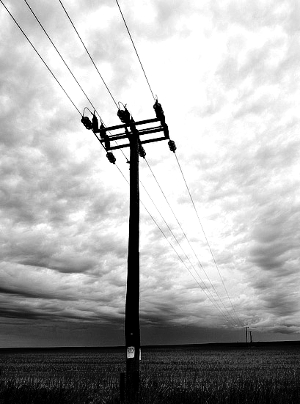Power gap for remote people
 Experts have exposed an electricity equity gap in remote Australia.
Experts have exposed an electricity equity gap in remote Australia.
A joint research venture by The Australian National University (ANU) and the Tangentyere Research Hub in Alice Springs has highlighted a significant disparity in access to household electricity protections for remote and Indigenous communities in Australia.
The study, involving over 3,000 settlements across the nation, found that one in five Australians do not enjoy equal access to essential electricity safeguards.
Particularly impacted are the Northern Territory and Western Australia, where residents are less likely to be covered by legal protections ensuring continuous core electricity services.
In contrast, New South Wales boasts the highest number of residents under comprehensive legislative protection.
“Twenty per cent of the population live in settlements where not all consumers have access to all five of the basic legislative protections we examined,” lead researcher Dr Lee White, from ANU, said.
“This includes people living in remote and in Indigenous communities.”
The study focused on five key legal protections: disconnection protections for life support customers, rules for unplanned interruptions, mandatory electricity disconnection reporting, clarity and independence in the complaints process, and guidelines for rooftop solar connection.
Findings reveal that remote communities are 18 per cent more likely to receive fewer than four of these protections, with Indigenous communities 15 per cent more likely to lack access to any.
“This study shows there is room to improve electricity protections for all Australians, but especially those who have long been underserved because of regulatory difference,” Dr White said.
The research also highlights obstacles faced by remote communities in transitioning to clean energy sources like rooftop solar. Regulatory barriers significantly impede their ability to connect to the electricity grid, disadvantaging them in the clean energy transition.
“Connection to electricity is a primary concern for our Town Camp households in Alice Springs, particularly during the hot summer months and cold winters in central Australia. Many of these inequities will only become more apparent because of climate change,” says Michael Klerck from the Tangentyere Research Hub.
The researchers advocate for a national database to monitor household energy protections and call for nationally consistent rules to prevent energy disconnections during extreme temperatures.
They also emphasise the need for mandatory electricity disconnection reporting across Australia.
The full study is accessible here.







 Print
Print